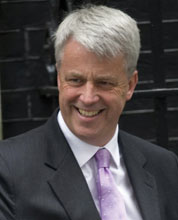Proposals for a major shake-up of the NHS in England were revealed by the coalition government last week.

A white paper announced by health secretary Andrew Lansley aims to introduce a national independent NHS Commissioning Board to commission services such as primary ophthalmic provision.
Responsibility for spending the budget and the implementation of services will lie largely with GPs, which will see the 152 primary care trusts (PCTs) being phased out. The scheme will be piloted throughout next year by GPs with a full roll-out in 2012.
The changes have been largely welcomed by the optical profession. A spokesperson for the College of Optometrists and the Optical Confederation stated: 'Being a national service, set out in regulations, regulated by the GOC and market-led, the funding genuinely follows the patient and the system delivers accessible care without waiting, wherever patients want it, the length and breadth of the country.'
Register now to continue reading
Thank you for visiting Optician Online. Register now to access up to 10 news and opinion articles a month.
Register
Already have an account? Sign in here
